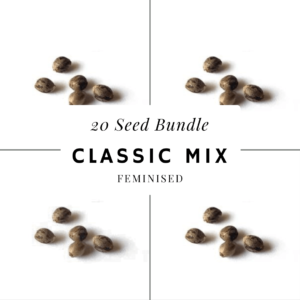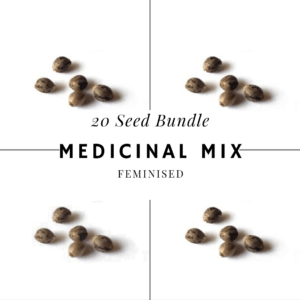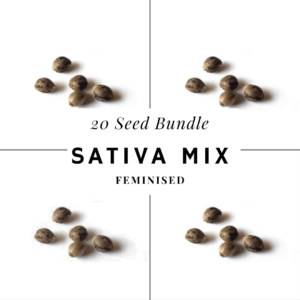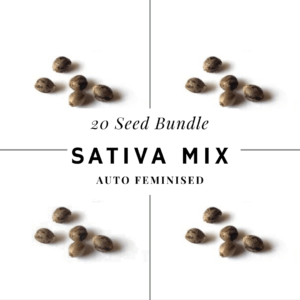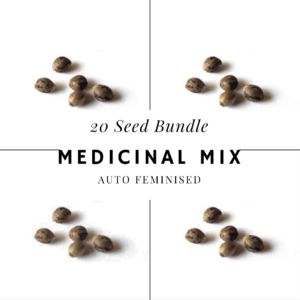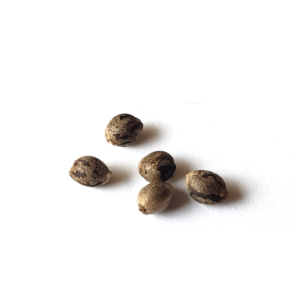The ongoing debate surrounding the use of cannabis and its derivatives, particularly CBD and THC, continues to spark curiosity and interest. In this article, we will delve into the complex world of these two cannabinoids, exploring their origins, functions, medical applications, psychoactive properties, potential adverse effects, and legal status in the context of CBD vs THC. Furthermore, we will examine the intriguing concept of the entourage effect, where CBD and THC are believed to work synergistically, potentially enhancing the therapeutic benefits of cannabis.
CBD vs THC: Key Takeaways
Understanding CBD and THC is essential to comprehend their properties, effects on the body, and interactions with our systems.
Both compounds have potential medical applications. CBD has therapeutic benefits for epilepsy, depression, anxiety etc., while THC can treat chemotherapy-induced nausea/vomiting & AIDS appetite loss.
The entourage effect of combining both may lead to improved outcomes for conditions such as pain or mental health disorders due to increased efficacy & bioavailability.
Understanding CBD vs THC

Cannabidiol (CBD) and delta-9-tetrahydrocannabinol (THC) are the two primary cannabinoids present in cannabis plants, each with its unique properties and effects on the body. While THC is responsible for the psychoactive effects commonly associated with cannabis use, CBD is non-intoxicating and has gained significant attention for its potential medical benefits.
Navigating the world of medical cannabis requires a clear understanding of the distinctions between CBD and THC, along with their interactions with our bodies.
Origin and Structure
CBD and THC both originate from the Cannabis sativa plant, with THC being the primary psychoactive component responsible for the euphoric feeling experienced when smoking marijuana or consuming edibles. Discovered and isolated by Israeli chemist Raphael Mechoulam in 1964, THC has since been the subject of numerous studies, including those related to substance abuse.
On the other hand, CBD is another compound of the cannabis plant, related to THC but lacking its psychoactive effects. The molecular structures of both these cannabinoids consist of fused rings and an ether, found in the Cannabis sativa plant. Their biosynthesis pathways involve the formation of cannabigerolic acid (CBGA), which then cyclizes to form either tetrahydrocannabinolic acid (THCA) or cannabidiolic acid (CBDA).
CBD vs THC: Primary Functions
CBD and THC interact with the endocannabinoid system, a biological system responsible for regulating various physiological processes in our body through cannabinoid receptors.
THC exhibits a strong binding affinity to CB1 receptors in the brain, resulting in psychoactive effects such as:
hypolocomotion
hypothermia
catalepsy
analgesia
However, CBD exhibits a weak binding affinity to CB1 receptors, thus not inducing psychoactive effects like THC does.
The potential therapeutic window of THC is influenced by its pharmacodynamic tolerance, which may limit the maximal effects of certain drugs but also reduce undesirable effects, enhancing its therapeutic potential. Research suggests that THC may help regulate breathing patterns during sleep, potentially benefiting those with obstructive sleep apnea (OSA). However, chronic THC use has been associated with several potential adverse effects, including psychiatric conditions and cardiovascular issues.
Medical Applications of CBD vs THC

Both CBD and THC have demonstrated potential medical applications, with some treatments receiving FDA approval and ongoing research exploring additional therapeutic uses. Despite being regulated by the Drug Enforcement Administration, these compounds, including medical marijuana, continue to gain interest in the medical community.
Subsequent sections discuss the specific medical uses of CBD and THC, emphasizing potential benefits in treating an array of conditions.
CBD Medical Uses
CBD has shown promising results in the treatment of epilepsy, anxiety relief, and potential benefits for other conditions. The FDA-approved medication Epidiolex, which contains CBD, is utilized to treat rare, hard-to-control forms of epilepsy. Furthermore, CBD oil may assist with symptoms associated with depression, anxiety, insomnia, and schizophrenia.
Despite Epidiolex being the sole FDA-approved medication containing CBD, it’s important to highlight CBD’s broad medical applications. These include managing symptoms of:
depression
anxiety
insomnia
schizophrenia
The expanding research on CBD’s medical uses underscores its potential therapeutic benefits, bolstering its popularity as a promising treatment option.
THC Medical Uses
THC has proven effective in managing chemotherapy-induced nausea and vomiting, as well as stimulating appetite in AIDS patients. The FDA has approved synthetic THC compounds nabilone and dronabinol for these specific applications. However, it is essential to consider potential contraindications, such as hypersensitivity to cannabinoids or any components present in their formulation, when prescribing these treatments. In some cases, doctors may prescribe medical cannabis as an alternative option for patients who do not respond well to synthetic THC compounds.
Research is currently being conducted to evaluate the efficiency of THC in treating fibromyalgia and other forms of chronic pain. Careful evaluation of a patient’s medical history and potential drug interactions is necessary when prescribing THC-based treatments. Furthermore, patients should be thoroughly instructed on the proper use of these medications to minimize any potential psychomotor impairment.
Psychoactive Properties and Effects

A significant distinction between CBD and THC lies in their psychoactive properties and effects on the body and mind. While THC is well-known for producing the “high” associated with cannabis use, CBD has minimal or non-existent psychoactive effects.
Subsequent sections will contrast the psychoactive properties and effects of CBD and THC, elucidating their contribution to the overall cannabis experience.
CBD vs THC Psychoactive Effects
CBD does not produce the euphoric sensation commonly associated with cannabis, as it has a relatively low affinity for CB1 receptors in the brain. Studies have shown that CBD can:
Counteract the adverse effects of THC, even at low dosages
Help to generate a more balanced and clear-headed experience
Interact with various receptors, including serotonin, dopamine, and glutamate receptors
Result in increased levels of serotonin and anandamide in the brain
Although CBD is generally considered safe and well-tolerated, some individuals may experience altered mental states after using CBD. These may include:
Depression
Suicidal ideations
Confusion
Hallucinations
However, it is important to note that these cases are relatively rare and may vary depending on individual factors.
THC Psychoactive Effects

THC, the primary psychoactive component in cannabis, binds to endocannabinoid receptors in the cerebral cortex, cerebellum, and basal ganglia, which are responsible for cognitive processes, memory, pleasure, coordination, and motor skills. The immediate psychoactive effects of THC may include laughter, altered perception of time, and increased appetite, especially when smoking cannabis.
The potential long-term psychoactive effects of THC are still under debate and require further research. However, some studies suggest that chronic THC use may be linked to the following conditions:
Hypotension
Tachycardia
Bradycardia
Psychiatric conditions, including fear, distrust, hallucinations, stupor, seizures, and post traumatic stress disorder.
Potential Adverse Effects and Risks
Being mindful of the potential adverse effects and risks associated with CBD and THC use, including both immediate and long-term consequences, is necessary.
Upcoming sections delve into the specific adverse effects and risks of CBD and THC use, offering a comprehensive understanding of these cannabinoids’ potential drawbacks.
CBD Adverse Effects
Commonly reported side effects of CBD include:
Dry mouth
Low blood pressure
Lightheadedness
Drowsiness
Sedation
Somnolence
Fatigue
Lethargy
Malaise
Gastrointestinal issues
Reduced appetite
Nausea
Irritability
Diarrhea
In some cases, signs of liver injury have also been reported. While CBD is generally considered safe, there are some potential long-term health complications associated with its usage, such as diarrhea, changes in appetite and weight, fatigue, and potential drug interactions.
Given CBD’s generally mild and well-tolerated nature, the potential adverse effects and risks linked to its use still warrant consideration. High doses of CBD have been associated with liver impairment and injury, whereas lower doses commonly found in over-the-counter products are generally well-tolerated.
THC Adverse Effects
Individuals with a genetic predisposition or strong family history of schizophrenia may be susceptible to the onset of the condition if they take regular or large doses of THC. It is important to be mindful of this risk. Long-term THC use has been associated with:
Cognitive impairment
Anxiety
Paranoia
Increased risks of psychosis
Brain fog
Decreased motivation
Trouble with learning and attention
Decrease in gray matter volume
Increased risk of mental health disorders
Changes in brain morphology associated with memory and executive function
THC has the potential to be both physically and psychologically addictive, with research suggesting that approximately 9 percent of marijuana users develop an addiction to THC. It is crucial to be aware of the potential adverse effects and risks associated with THC use and to exercise caution in its consumption.
Interactions with Other Medications
Interactions between CBD vs THC, and other medications can influence treatment outcomes and patient safety. Subsequent sections explore these cannabinoids’ potential interactions with various medications, offering valuable insight for those considering CBD or THC’s incorporation into their treatment plans.
CBD Drug Interactions
CBD has the potential to interact with other drugs, such as:
Anti-epileptic drugs
Antidepressants
Opioid analgesics
THC
This can alter their effects and potentially increase their levels in the blood. CBD can also interfere with the enzymes in the liver that break down drugs, potentially altering their effects and side effects.
Combining CBD with other medications may pose potential dangers, such as increased levels of certain medications, leading to an increased risk of bleeding. It is crucial to consult with a healthcare professional or pharmacist to gain an understanding of the possible interactions between CBD and specific medications.
THC Drug Interactions
THC can potentially affect the metabolism of other drugs, causing their blood levels to either fall or rise. THC can induce the metabolism of certain drugs, reducing their levels in the body. Examples of medications that may have hazardous interactions with THC include:
Amlodipine
Gabapentin
Lisinopril
Warfarin
Tricyclic antidepressants
It is essential to consult with a healthcare professional or pharmacist to gain an understanding of the possible interactions between THC and specific medications, as well as to assess the potential risks and benefits associated with the use of THC in combination with other medications.
Legal Status and Regulations
Legal status and regulations for CBD vs THC significantly differ based on the country and jurisdiction, affecting access to medical and recreational cannabis products.
Upcoming sections review the legal status and regulations of CBD and THC, offering a comprehensive understanding of the current landscape surrounding these cannabinoids.
CBD Legal Status
CBD is classified as a Schedule V substance, which has implications for its use in medical treatments. Here is the legal status of CBD in the United States:
Hemp-derived CBD products containing less than 0.3 percent THC are federally legal.
Marijuana-derived CBD products are not allowed under federal law.
However, state laws may differ, and some states have different regulations on the matter.
Internationally, the legal status of CBD varies, with some countries allowing its use for medicinal purposes and others prohibiting it altogether. It is essential to research and understand the specific regulations in each country before considering the use of CBD.
THC Legal Status
CBD vs THC in Australia have wildly different situations. THC remains a controlled substance classified as a Schedule 8 substance, which means its use is strictly controlled and must be prescribed by a doctor. It is used in medical treatments for certain conditions, and its recreational use is illegal. However, the Therapeutic Goods Administration (TGA) can grant access to medicinal cannabis products, including THC, under the Special Access Scheme or Authorised Prescriber Scheme. remains illegal on a federal level in the United States, classified as a Schedule I substance, with some state laws varying regarding its medical and recreational use. In Canada, THC was legalized for recreational use in October 2018.
The legal status of THC in European countries varies. Some countries have legalized or decriminalized cannabis to varying degrees, such as:
The Netherlands
Switzerland
Austria
Croatia
The Czech Republic
It is crucial to understand the specific regulations in each jurisdiction, including drug test requirements, before considering the use of THC.
The Entourage Effect: CBD and THC Working Together

The entourage effect refers to the synergistic relationship between various compounds present in the cannabis plant, such as:
CBD and THC
- THCV
Terpenes
Flavonoids
Resins
These compounds may work together to enhance the therapeutic benefits of cannabis.
Subsequent sections will scrutinize the entourage effect in greater detail, exploring CBD and THC’s synergistic effects, and discussing conditions that could potentially benefit from this interaction.
Synergistic Effects
The synergistic effects of CBD and THC can produce a more balanced and clear-headed experience, as well as enhanced therapeutic benefits, due to their combined effects when taken together. CBD modulates the effects of THC by tempering the undesired side effects and providing supplementary therapeutic advantages. Additionally, CBD may inhibit the metabolism of THC, leading to more potent and sustained effects, while also reducing some of the psychoactive effects of THC.
The entourage effect is hypothesized to be the result of the synergistic combination of various compounds present in cannabis, such as cannabinoids and terpenes, which may have a greater impact than when used individually. Further research is needed to fully understand and validate the entourage effect.
Examples of Conditions Benefiting from the Entourage Effect
The entourage effect may prove beneficial for conditions such as pain management, epilepsy, and mental health disorders. Studies have indicated that CBD and CBDa-enriched hemp extracts possess anticonvulsant properties when treating epilepsy, and the addition of terpenes to cannabinoids can contribute to the entourage effect. Furthermore, CBD has been shown to induce a pro-hedonic effect in rats, suggesting its potential to treat depression and anxiety.
The potential advantages of the entourage effect include increased therapeutic efficacy, enhanced bioavailability, and diminished side effects. As research advances, a deeper understanding of the entourage effect and its potential benefits for various conditions may emerge.
Summary
In summary, a CBD vs THC analysis shows that these two primary cannabinoids found in cannabis plants each have their own unique properties, functions, and effects on the body. Both cannabinoids have demonstrated potential medical applications, with ongoing research exploring their therapeutic benefits for various conditions.
The entourage effect, a synergistic interaction between CBD, THC, and other cannabis compounds, may further enhance the therapeutic potential of cannabis. However, it is essential to be aware of the potential adverse effects, risks, and drug interactions associated with CBD and THC use, as well as the legal status and regulations surrounding these cannabinoids. As our understanding of CBD and THC continues to evolve, so too will our ability to harness their potential benefits for the betterment of human health.
Frequently Asked Questions
What are the side effects of THC drops?
The most common side effects of medicinal cannabis treatments such as THC drops are fatigue and sedation, vertigo, nausea and vomiting, fever, decreased or increased appetite, dry mouth, and diarrhoea.
What are the benefits of THC in Australia?
Medicinal cannabis has proven benefits for people with cancer in the form of pain relief, reduced nausea from chemotherapy, and improved appetite. It is an add-on medicine prescribed by doctors to help manage symptoms associated with serious medical conditions.
Is THC oil harmful to kidneys or liver?
Based on available evidence, cannabis does not appear to directly harm kidneys in healthy individuals. However, those with chronic kidney disease should monitor their renal function closely and use the lowest effective dose when using cannabis to avoid potential impacts on transplant candidacy.
What is considered high THC?
High THC levels can be found in cannabis concentrates such as shatter, wax, butters and oils, with levels ranging from 60-90%. These products are used for dabbing and to produce vaping cartridges and infused joints, and are the main ingredient in edibles.




